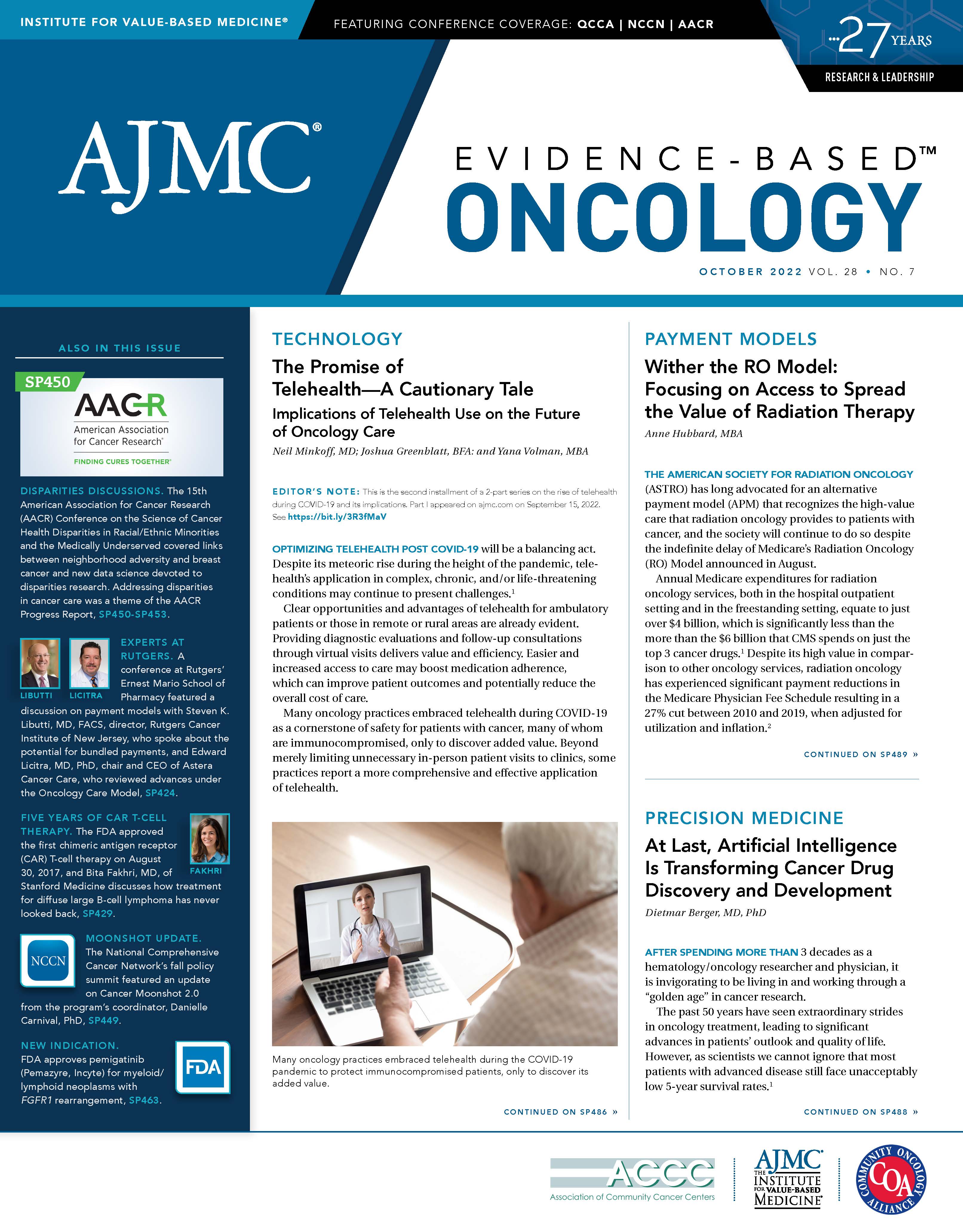- Center on Health Equity & Access
- Clinical
- Health Care Cost
- Health Care Delivery
- Insurance
- Policy
- Technology
- Value-Based Care
California Takes a Step Toward Bringing Equity in Cancer Care
The new law will expand access for Medi-Cal patients who receive a complex cancer diagnosis and represents a critical first step in fulfilling the promise of the California Cancer Patients Bill of Rights, a resolution adopted by the legislature in 2021.
More than 3 decades ago I was called upon to consult on a patient in the emergency department (ED) who presented with 2 weeks of fatigue, bruising, and fever. His initial white blood cell count was approximately 100,000 and he was severely anemic. As I walked into the room, I realized that he was a childhood friend who I had not seen for years. He did not have insurance and had come to this (ED) out of desperation. Although he chose that particular ED out of fear, his accidental choice allowed him to benefit from care and clinical trials that likely would not have been available at the next closest emergency center. Throughout the years, I have spoken with far too many patients whose desperate choices sometimes led to care options that provided a powerful path forward and to others whose first forays into treatment limited their options and opportunities.
As patients and families begin their respective cancer journeys, the path is rarely straightforward, and it is often rendered all the less traversable by the unintended consequences of labyrinthine systems of narrow networks, arcane payment models, obtuse coverage policies, and brute force methods of lowering care costs. As physicians and caregivers, we often bear witness to the immense courage of our patients and their families as they fight not only cancer, but also a health care system that is often indifferent to their needs or the urgency of their plight.
In California at least, our patients may soon have better choices. More than a year ago, my institution, City of Hope, joined a coalition-based effort, Cancer Care Is Different, to highlight how inequities in the health care system fall especially hard on patients with complex cancers, who could not access the best care because of their financial circumstances. Enrollment in Medi-Cal, the Medicaid system for the state of California, offered no guarantee that a person with cancer could gain access to a National Cancer Institute‑designated cancer center, even if such a center offered access to clinical trials or treatments that offered the best chance of long-term survival.
Efforts of this coalition bore fruit September 28 when Gov. Gavin Newsom signed the California Cancer Care Equity Act, which is scheduled to take effect January 1, 2023.1 The new law will expand access for Medi-Cal patients who receive a complex cancer diagnosis and represents a critical first step in fulfilling the promise of the California Cancer Patients Bill of Rights, a resolution adopted by the legislature in 2021.
The need for this law was clear. Data produced by the Cancer Care Is Different Coalition showed that Medi-Cal patients experienced less favorable 5-year survival rates for several types of cancer, compared with patients who had private insurance. With 44.3% of Black patients and 44.9% of Hispanic patients enrolled in Medi-Cal these disparities in outcomes translated into significant differences in health outcomes for these patient populations.
Diverse forces came together to pass the Cancer Care Equity Act. Our partners in this effort include the American Cancer Society Cancer Action Network, the Leukemia & Lymphoma Society, Susan G. Komen, the National Marrow Donor Program/Be The Match, and institutions that include Cedars-Sinai, Stanford Health Care, and more. Our work is not finished, but we have taken a crucial step.
Reference
Cancer Care Equity Act (Portantino). American Cancer Society Cancer Action Network. Accessed September 28, 2022. https://www.fightcancer.org/california-cancer-care-equity-act-sb987-portantino

Quality of Life: The Pending Outcome in Idiopathic Pulmonary Fibrosis
February 6th 2026Because evidence gaps in idiopathic pulmonary fibrosis research hinder demonstration of antifibrotic therapies’ impact on patient quality of life (QOL), integrating validated health-related QOL measures into trials is urgently needed.
Read More
